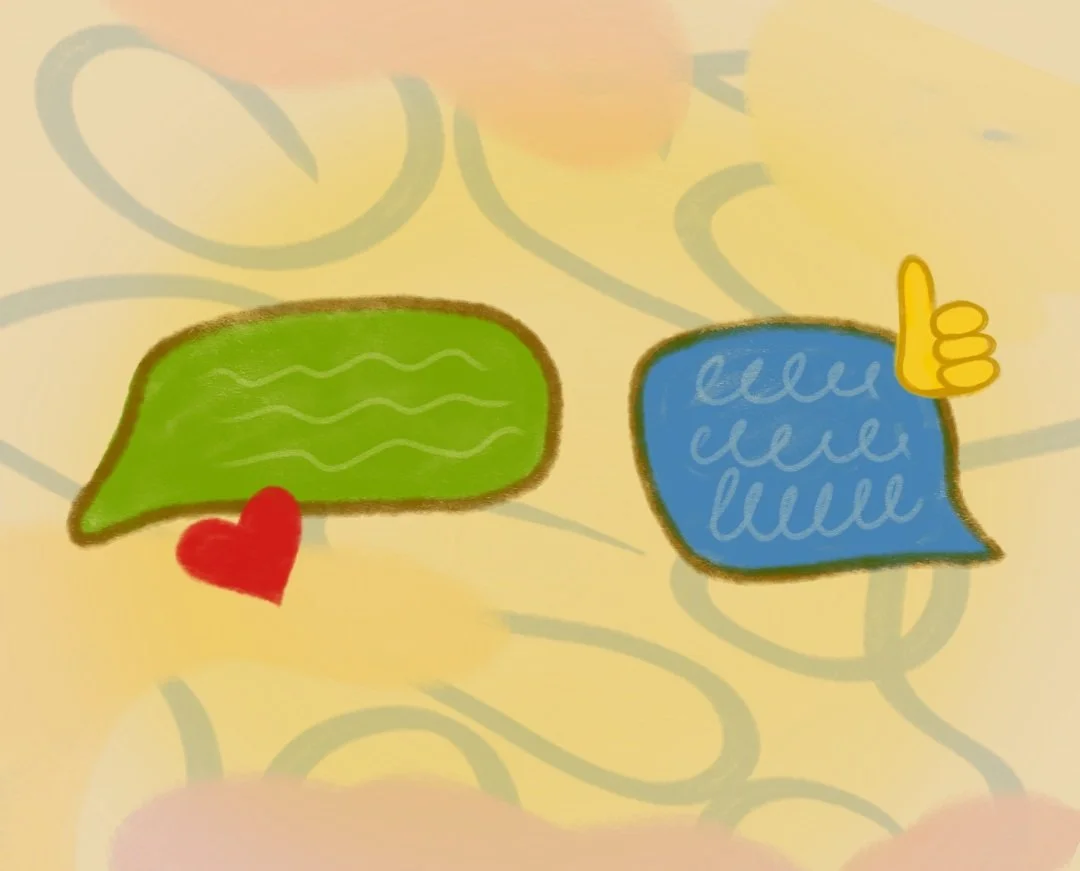How to Provide Author Feedback 101 — StoryForge
It’s the gift all writers crave: helpful feedback on their works in progress. But providing your personal thoughts on someone else’s personal writing is a mutual act of trust– and that can make creating feedback a really tricky topic.
Never fear, conscientious commenter! We’re here to give you some helpful tips and tricks on giving authors the best feedback possible.
There are 5 key things to remember when leaving a comment on an author’s work in progress:
Be Respectful
Balance Your Critique
Be Specific
Ask Questions
Kindness Above All
Be Respectful
Works-in-progress are incredibly vulnerable– and so are their authors! It is of the utmost importance that all comments you post are respectful.
Try to use primarily “I” statements and avoid telling the author what to do with their own story. Remember that intent and impact are different. Above all, think about how your comments might affect the author.
Good Example: What a great story so far! I was impressed by how supportive the MC’s parents were. It was really lovely to see them embrace the MC’s truth. <3
Bad Example: My parents would never have been so supportive– it’s unrealistic. I think you should have at least one of the parents be totally against MC’s coming out. That would add more conflict and make the story so much better than it is now.
Balance Your Critique
We know how hard it can be to receive critical feedback on something we’ve worked hard on. But it’s almost equally as hard to give someone truly constructive feedback! Kind and thoughtful criticism of a work in progress is important for the editorial process. Without it, great works may never be created!
To give feedback on a work in progress (WIP), remember to balance your critique. Also mention something the WIP does well. This helps the author see that you have read the entire WIP and your critique comes from a wish to help them reach their piece's full potential.
Both pieces of feedback (positive and constructive) should be equally in-depth and supported by examples from the text.
Good Example: There’s something really wonderful about the magic system you’ve created! But I do think it could be teased out a bit more to avoid any plot issues down the line. For example, if the BBEG has the ability to turn back time, what would keep them from doing that every time the MC beats them? Is there something within the magic system that could counter the time-turning spell? It feels to me like there’s some overpowered side characters that would be better suited to fight the BBEG than the MC– Would it make sense to swap around some of the abilities the MC and their party have? Or do these powers come into play later in the story? I’m really loving this and I can’t wait to read more!
Bad Example: This story is okay so far but I don’t like the MC or the BBEG. Both are bland characters and I don’t really care about either of them winning or losing. I think you have an okay premise, but the story would be better if the characters were more interesting.
Be Specific
Vague feedback isn’t particularly helpful. Comments should include specific details. Mention what stood out to you, confused you, or excited you. We all want to hear positive feedback about our work in progress (WIP).
However, that is not always the most helpful feedback. A comment is helpful if it has depth. Knowing that you loved a story is great– knowing exactly what you loved about it keeps the author on track.
Good Example: OMG I LOVE THIS STORY! The MC is relatable and I think the dynamic between the MC and their BFF is super realistic. When they have that special moment together after the tournament, the way that they can understand each other without having to rely on dialogue is too sweet. I have to say it: I totally will go down with this SHIP.
Bad Example: OMG!!! I LOVE THIS!!! This story is soooo good.
Alternate Bad Example: Ugh. It needs to be better.
Ask Questions
The Socratic Method is your best friend when leaving helpful comments! Asking thoughtful questions helps the author to develop their work and clarify things that may seem obvious to them but feels unclear to a new reader. Your questions can be simple or complex, but they should always come from a place of genuine curiosity about the story.
Good Example: The MC’s name is super unique– does it have a meaning of some kind? Is there specific folklore about it that actually hints at the events of the story?
Alternate Good Example: I’m curious about how magic and science both play such big parts in the society you’ve created. How do these two seemingly opposite entities (Magicians Guild and the League of Scientists) work together? What is their history? Is there some old beef between them that explains some of the prejudice the two MCs feel for each other?
Bad Example: What’s the point of this story? Why did you decide to write about such a boring topic?
Kindness Above All
Remember: If you don’t have anything nice to say, don’t say anything at all. If you come across a work that you truly cannot find anything positive to comment on, then it is best to move on. Some stories are simply not going to be your cup of tea, and that’s okay.
The ultimate goal of commenting on an author’s WIP is two-fold:
The author should feel confident and supported, and
The author should be able to use the comments to help them bring out the fullest potential of the story they are creating.
Before you leave a comment, ask yourself if this is feedback that you would appreciate receiving. If yes, then post away!
If not, you should think about how you wrote the comment. Will it help the author on their writing journey?
StoryForge is a safe space for all of our writers and readers– as long as you follow the five rules above, you can be confident that you’re providing the best feedback you can!

